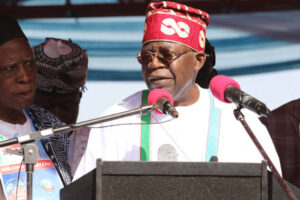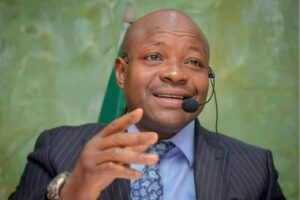DSS Reforms Under Tosin Ajayi Break Historic Ground with First-Ever Compensation for Wrongful Detention
By HeadlineNews.News National Security Desk | July 21, 2025
In a watershed moment for Nigeria’s national security and human rights landscape, Director-General of the Department of State Services (DSS), Mr. Tosin Ajayi, has initiated a string of unprecedented reforms, including the release and compensation of detainees wrongfully held by the Service—a first in Nigeria’s history.
The development, which many are calling a quiet revolution within Nigeria’s intelligence community, reflects a broader shift toward justice-driven security, consistent with President Bola Ahmed Tinubu’s mandate for people-focused governance under the All Progressives Congress (APC) administration.

Justice at Last for Victims of Mistaken Identity and Overreach
Among the most compelling of these reforms is the case of Abdulyakini Salisu, a quarry worker from the Zuba-Kaduna corridor, who had been unjustly held in DSS custody since 2022 due to mistaken identity. On July 19, Salisu walked free.
In an act described by civil liberties groups as “monumental and unprecedented,” the DSS not only released Salisu but issued a formal apology, awarded him ₦10 million in compensation, and guaranteed him free lifelong medical care through the agency’s healthcare system.
The case came to light following an investigation initiated by Ajayi himself, who formed an internal review committee upon assuming office in August 2024. The committee is tasked with rooting out systemic abuse, and has already reviewed over 130 cases, sources confirm.
“This is not just symbolic—it’s a real shift,” said Dr. Fraser MFR, an expert in intelligence reform and national security policy.
“This is the first time in our history that the DSS has compensated a civilian. Ajayi’s decision puts Nigeria on the map of modern democratic intelligence services.”

From Secrecy to Accountability: A New DSS Is Emerging
The Salisu case isn’t isolated. On July 1, the DSS also released 11 artisans wrongfully detained in Osun State on terrorism-related suspicions. Those released—including Mohammed Adamu and Baba Kura Mallam—were cleared of wrongdoing and compensated with undisclosed but confirmed multimillion-naira settlements.
Insiders describe Ajayi’s leadership as decisive, ethical, and empathetic. His decisions are guided by the principles of legality, proportionality, and necessity—tenets rarely emphasized in Nigeria’s security history.
One senior DSS officer, speaking anonymously, revealed:
“When Sahara Reporters published Salisu’s story, the DG personally ordered a 48-hour verification. Once the facts were established, he acted immediately. That’s unheard of here.”

An Administration That Governs with a Human Face
These reforms align directly with President Tinubu’s vision of a humane and law-abiding government. His appointment of Ajayi—a professional known more for his quiet brilliance than for political lobbying—was seen by many as a bold departure from the norm.
“If Tinubu was not in power, a technocrat like Ajayi would never have made it to the top of the DSS,” said Dr. Fraser, MFR.
“This was a merit-based appointment, not one of religious, ethnic, or political favoritism. And the results speak for themselves.”

The APC government, often criticized by detractors for its security posture, now appears to be charting a new course that balances national intelligence with constitutional rights.
Rebuilding Public Trust Through Action
Ajayi has also initiated internal disciplinary proceedings against DSS operatives involved in wrongful arrests, breaking an unofficial culture of impunity that has long plagued the Service.
“Security must walk hand in hand with justice,” Ajayi was quoted as saying during a strategy meeting.
“We must be courageous enough to admit our missteps, and compassionate enough to make them right.”

In another standout gesture, the DG ordered the full reinstatement and scholarship for Mohammed Ciroma Jr., a 400-level student of Modibbo Adama University, Yola. Wrongfully detained on false charges, Ciroma’s academic future was salvaged by Ajayi’s personal intervention.
The End of the Black Box Era?
Historically, the DSS has been viewed as opaque, unaccountable, and often high-handed. Its reputation—built over decades of military rule and unchecked executive power—was one of fear rather than service.
- Ajayi’s tenure could mark the beginning of a paradigm shift. The DG has:
- Banned public brandishing of weapons by DSS personnel
- Ordered strict adherence to operational protocols rooted in human rights law
- Mandated weekly reviews of public complaints and media reports for possible abuse

A Turning Point in Nigerian Security Governance
For the first time, Nigeria’s foremost intelligence agency is leading with empathy, backed by law, and driven by reform. Victims are no longer just statistics—they are receiving apologies, justice, and restitution.
This new chapter for the DSS reflects Tinubu’s vision of a government that listens and corrects itself, while signaling to the world that Nigeria is capable of evolving into a rights-conscious democracy even in its most powerful institutions.
With justice, transparency, and human dignity now at the forefront, the Tinubu administration and DSS leadership under Tosin Ajayi have set a historic precedent—one that may define the legacy of this government for years to come.
Dr. G. Fraser. MFR.
The National Patriots.
Headlinenews.news Special Investigative Report.




